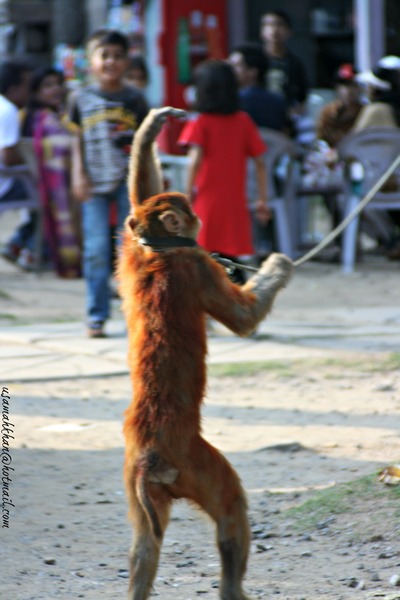Overhunting affects seed dispersal and thus survival of hardwood trees, resulting in drastic reduction in Earth’s natural carbon storage, study finds

PHOTO: USAMAH MAHMOOD KHAN
Large fruit-eating monkeys and birds in tropical forests have been revealed as surprising climate change champions, whose loss to over-hunting is driving up carbon emissions. This is because their seed-spreading plays a vital role in the survival of huge, hard-wooded trees.
Tropical forests store 40% of all the carbon on the Earth’s surface and the slashing of trees causes about 15% of the greenhouse gases that drive global warming.
Long-lived, thick and hard-wooded trees are especially good carbon stores, but they have large seeds that can only be dispersed via defecation by large animals. These big creatures have suffered huge losses from subsistence hunters, meaning hardwood trees are being replaced with softwood trees, which have smaller seeds but store less carbon.
“In much of the tropics these [large] animals are pretty much gone, outside of protected areas and sometimes even inside protected areas,” said Prof Carlos Peres, at the University of East Anglia, UK, one of the international team behind the new study. “[Hardwood trees] require these big beasts to disperse their seeds. This is what is being lost.”
“Policies to reduce carbon emissions from tropical countries have primarily focused on deforestation,” Peres said. “But our research shows that a decline in large animal populations poses a serious risk for the maintenance of tropical forest carbon storage.”
The new research was led by scientists at São Paulo State University in Brazil andpublished in Science Advances. It focused on the Atlantic rainforest of Brazil, where 95% of all trees rely on animals to disperse seeds, and analysed the interactions between 800 animal species and 2,000 tree species.
It found losses of large animals like woolly spider monkeys, tapirs and toucans leads to the loss of hardwood trees. These are replace by softwood trees, whose smaller seeds (less than 12mm long) are spread by small fruit-eating marsupials, bats and birds which are not the target of hunters. The scientists estimated that 10-15% of the carbon stored in the original mixed forest is lost.



You would think that this would be obvious to scientists.
LikeLiked by 1 person
Like the bees. Persecution of animals is not a way forward.
LikeLike